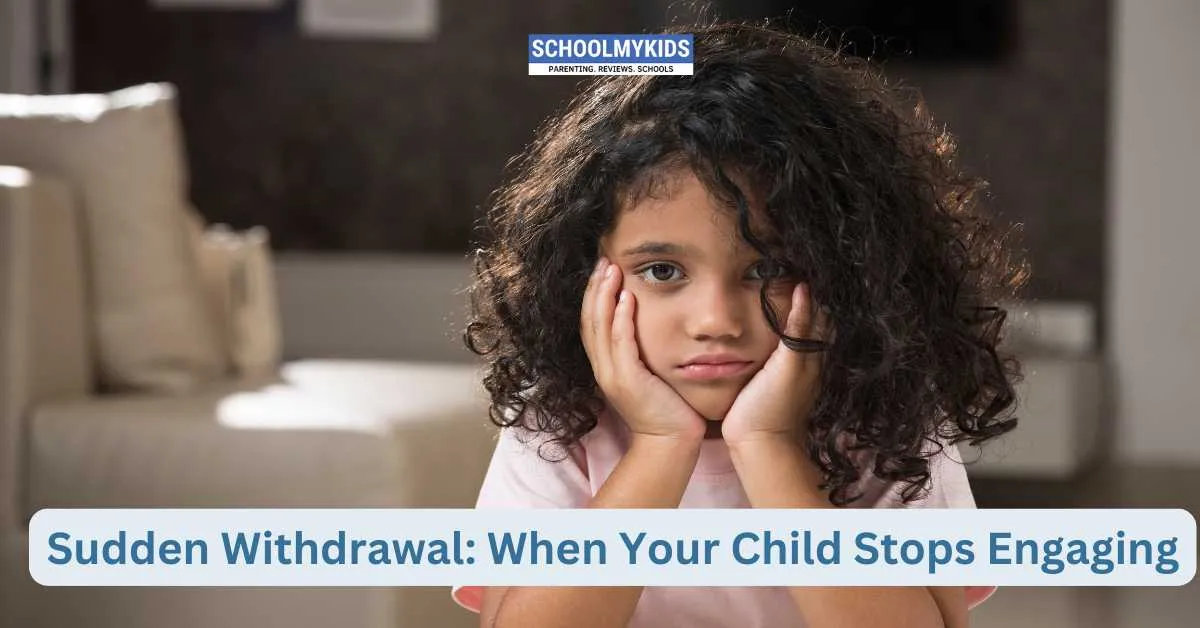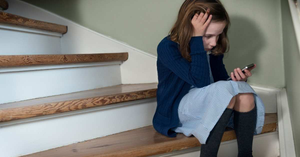When a child who was once active and socially engaged suddenly retreats from family activities, school, or friendships, it can be a concerning sign. Sudden withdrawal isn’t just a phase—it may indicate underlying challenges that require attention and support. Understanding the signs, potential causes, and strategies for intervention is crucial for parents and caregivers.
Recognizing the Signs
Behavioral Changes
- Loss of Interest: A noticeable decline in participation in activities that were once enjoyed, such as hobbies, sports, or social gatherings.
- Isolation: Choosing to spend more time alone, avoiding family dinners, or distancing from friends.
- Academic Disengagement: Reduced effort in schoolwork, skipping classes, or a decline in academic performance.
Emotional Shifts
- Increased Irritability or Sadness: Heightened mood swings, frequent tearfulness, or irritability without clear triggers.
- Withdrawal from Conversations: Reluctance to share thoughts or feelings, and a tendency to keep problems to oneself.
Physical Indicators
- Changes in Sleep or Appetite: Either insomnia or excessive sleeping, and noticeable changes in eating habits.
- Unexplained Aches: Frequent complaints of headaches or stomachaches that may be linked to stress.
Potential Underlying Causes
Bullying and Social Pressures
- Peer Rejection: Experiencing exclusion or relational aggression in school can lead to a child feeling isolated.
- Cyberbullying: Negative interactions online may compound feelings of isolation and fear.
Mental Health Concerns
- Depression and Anxiety: Sudden withdrawal can be an early sign of depression or anxiety disorders. Studies by child psychologists show that these conditions often manifest as a retreat from previously enjoyed activities.
- Stress and Overwhelm: Academic pressures or family conflicts might overwhelm a child, causing them to shut down emotionally.
Environmental and Familial Factors
- Significant Changes: Events such as moving to a new school, divorce, or loss in the family can trigger withdrawal as a coping mechanism.
- Lack of Support: A perceived absence of understanding or support from family members or peers may exacerbate feelings of isolation.
The Impact on Development
Social and Emotional Well-Being
- Eroded Self-Esteem: Persistent withdrawal can lead to diminished self-confidence, making it harder for the child to reconnect socially.
- Difficulty Trusting Others: The habit of retreating can become a self-protective barrier, interfering with the development of healthy relationships.
Academic Performance
- Declining Engagement: Disinterest in schoolwork and participation can hinder learning and long-term academic achievement.
- Isolation in the Classroom: A child who isolates themselves may miss out on collaborative learning opportunities and peer support, further impacting academic progress.
Strategies for Parents and Caregivers
Open Communication
- Create a Safe Space: Encourage your child to share their feelings by asking open-ended questions in a non-judgmental tone.
- Active Listening: Validate their experiences, letting them know you’re there to support them no matter what.
Observational Support
- Monitor Changes: Keep an eye on shifts in behavior and mood, and note any patterns that might indicate stress or anxiety.
- Engage with Educators: Collaborate with teachers and school counselors to understand your child’s social interactions and academic performance.
Professional Intervention
- Seek Counseling: If withdrawal persists or worsens, consider reaching out to a mental health professional who specializes in child development.
- Therapeutic Activities: Encourage participation in group activities or therapy sessions that focus on building social skills and emotional resilience.
Encouraging Gradual Re-engagement
- Small Steps: Help your child gradually re-enter social environments by starting with low-pressure activities or one-on-one interactions.
- Positive Reinforcement: Celebrate small victories in social participation to build confidence and reinforce positive behavior.
Conclusion
Sudden withdrawal in children is a signal that something deeper may be amiss. Whether rooted in bullying, mental health challenges, or environmental stressors, early recognition and intervention can make a significant difference. By fostering open communication, providing a supportive environment, and seeking professional guidance when needed, parents and caregivers can help their child rediscover engagement and rebuild the social connections essential for healthy development.








Be the first one to comment on this story.